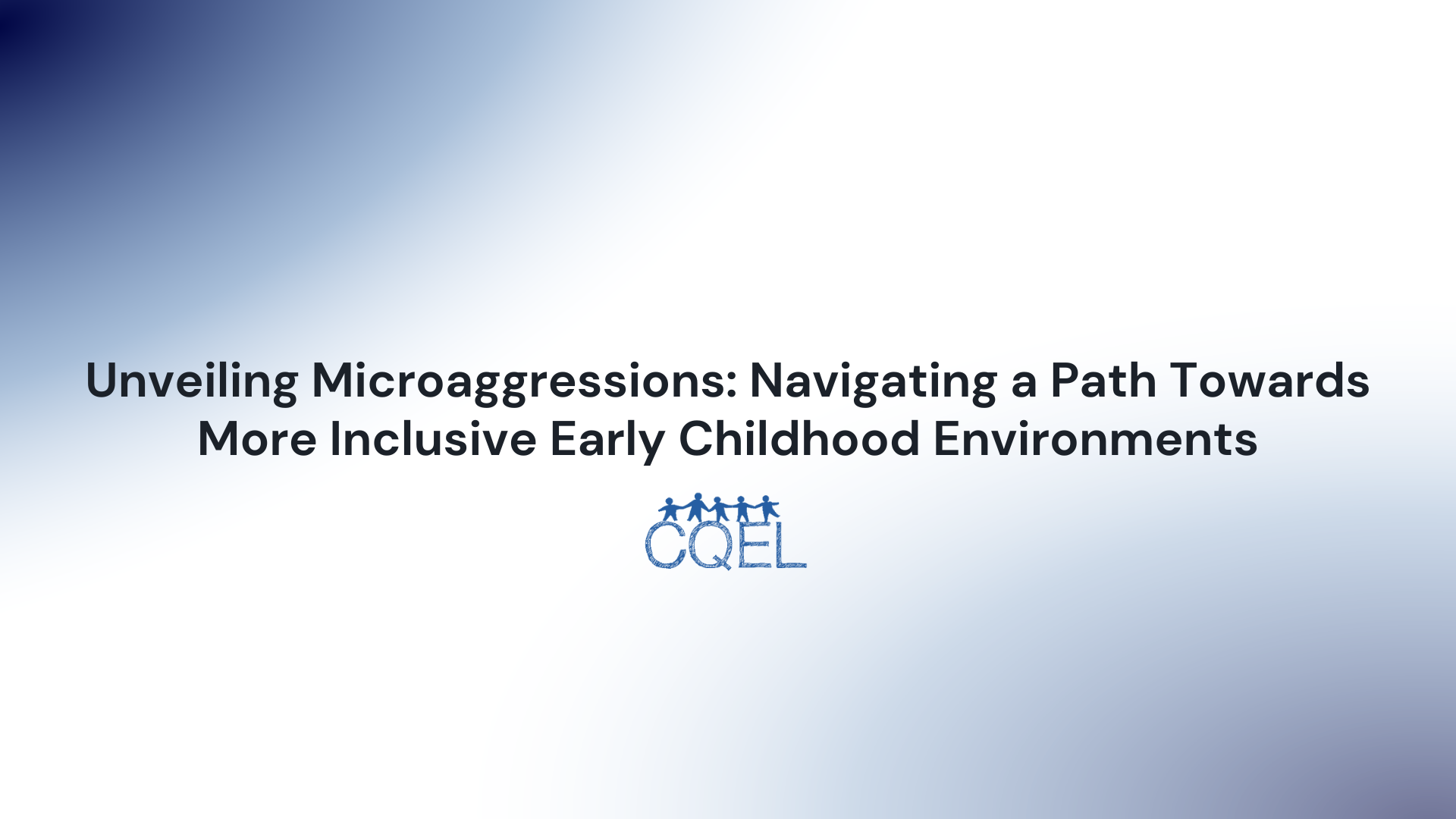Unveiling Microaggressions: Navigating a Path Towards More Inclusive Early Childhood Environments
Microaggressions are often unconscious, subtle slights or insults that can be verbal, nonverbal, or environmental and are often directed towards marginalized groups.

Microaggressions are often unconscious, subtle slights or insults that can be verbal, nonverbal, or environmental, and are often directed towards marginalized groups. They are pervasive and can occur in any setting, including early childhood environments. Children are particularly susceptible due to their developmental stage, making it vital for childcare providers to understand, recognize, and address microaggressions to foster an inclusive and respectful environment.
Recognizing Microaggressions
The initial challenge lies in identifying microaggressions, which are often deeply ingrained and unintentional. They may take forms such as a seemingly harmless joke, a stereotype, or even an offhand comment that can negatively impact the target group. In an early childhood setting, this could be a teacher consistently mispronouncing a child's name, making a child feel 'othered', or biased expectations based on a child's racial or ethnic background. Recognizing these subtle forms of discrimination is the first step to addressing them.
The Impact of Microaggressions
The impact of microaggressions can be significant and long-lasting. They contribute to a hostile learning environment and can adversely affect a child's self-esteem, social development, and overall mental health. They may cause children to feel marginalized and unwelcome, possibly leading to academic under performance or disengagement. Therefore, mitigating the impact of microaggressions is crucial to ensure the healthy development of all children.
Strategies to Address Microaggressions
Addressing microaggressions requires a multifaceted approach. Firstly, educators and childcare providers should actively educate themselves about diverse cultures, backgrounds, and experiences to build a more inclusive mindset. This self-education could include reading relevant literature, attending workshops or training sessions, and engaging in conversations about diversity and inclusion.
Moreover, it's important to create an open dialogue about microaggressions in the childcare setting. Educators should be encouraged to reflect on their own biases, consider the experiences of children from diverse backgrounds, and discuss strategies to prevent and address microaggressions.
Additionally, fostering an inclusive environment where all children feel valued and respected is crucial. This could involve integrating multicultural education into the curriculum, celebrating diverse cultures, and encouraging respectful interactions among children.
Resources for Addressing Microaggressions
There are numerous resources available for childcare providers interested in addressing microaggressions in their settings. The Anti-Defamation League offers resources and lesson plans on addressing bias and discrimination.
Understanding and addressing microaggressions in early childhood environments is a necessary and ongoing process. By fostering a culture of respect, inclusivity, and open dialogue, childcare providers can contribute significantly to a more equitable and inclusive early childhood education system.
